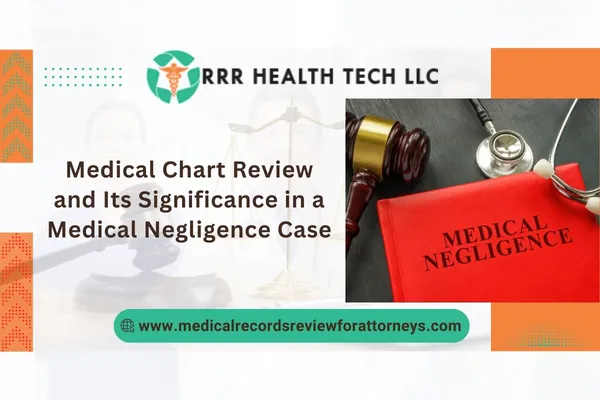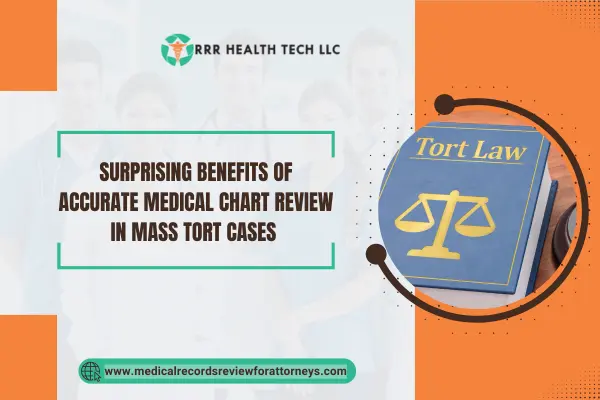
Introduction
Medical negligence is a sensitive problem that can affect patients and their families extremely as it has very serious consequences. It is crucial for attorneys within medical negligence litigations to understand the finer details relating to medical chart reviews. This article seeks to discuss the importance of the review of medical charts, the duties of medical record review companies, the legal dimension in the establishment of medical negligence, and the consequences of the negligence on the victims.
How Important Is the Role of a Medical Record Review Company?
Understanding Medical Record Review
- Definition: A medical record review is an in-depth study of the medical records of a patient, medical chart encounters, and other important documents to discover the breach of standard practice.
- Purpose: The other key reason is to ensure that attorneys are provided with all the relevant facts to make arguments for their clients in courts.
Functions of Medical Record Review Companies
- Expert Analysis: Review of medical files helps professionals in trained specialties to pinpoint inconsistencies and omissions.
- Evidence Compilation: Assure and integrate evidence that is critical in proving negligence.
- Testimony Preparation: The reviewing companies offer assistance in the preparation of court’s expert witnesses for rendition of testimony.
Benefits for Attorneys
- Informed Decisions: Having access to such information allows attorneys to make appropriate decisions on the merits of the case.
- Time Efficiency: Employment of medical chart reviewing will spare a lawyer some of the most precious resources in case preparation time.
Legal Aspects of Proving Medical Negligence
Key Legal Principles
• Standard Of Care: What is the reasonable standard of care in medicine is a critical question to address.
• Breach of Duty: In principle, it is necessary to prove that there WAS a qualified healthcare provider who omitted this standard.
• Causation: Legal practitioners are required to prove that the omission directly led to the injury sustained by the patient.
Role of Medical Record Reviews in Legal Proceedings
- Supporting Evidence: Medical records constitute important demonstrative proof of breach of duty.
- Expert Opinions: Reports frequently involve examining and soliciting an expert’s opinion on intricate issues that should be settled in court.
Challenges in Proving Negligence
- Complexity of Medical Records: The dense nature of medical records and their intricate aspects often impede access to information that is material to the case.
- Defense Strategies: Sometimes, healthcare outfits combine hard-hitting counters in most claims and these demand a very comprehensive review.
The Impact of Medical Negligence on Victims
Emotional and Psychological Effects
• Trauma and Anxiety: Medical malpractice brings anxiety and most of the time, emotional and psychological disturbance to the victims.
• Trust Issues: Patients may avoid seeking doctors in the future due to negative experiences leading to the development of mistrust towards healthcare providers.
Financial Consequences
• Medical Expenses: Victims may have to bear more expenses, which are costs for medical treatment for further injuries caused by instances of negligence.
• Loss of Income: Most victims do not return to work hence being financially incapacitated.
Case Studies
Case Study 1: Misdiagnosis of Cancer
- Overview: A 45-year-old woman has been misdiagnosed for 2 years and as a result has been left with late stage cancer.
- Challenges: Some signs of the disease were overlooked in advance by her first nurse, and unfortunate events happened concerning the patient’s health.
- Solutions: A thorough review of her medical records revealed missed diagnostic tests and inadequate follow-up.
Case Study 2: Surgical Error
- Overview: A 60-year-old man underwent surgery that resulted in severe complications due to a surgical error.
- Challenges: The surgical team did not follow proper protocols, leading to a prolonged recovery.
- Solutions: Loss of information regarding patients’ presurgical assessment was a repeat error and this was attributed to an oversight in the medical files.
Conclusion
The assessment of medical records comes in handy in the course of legal proceedings involving cases for medical negligence. Reviewing medical records helps injury victims prove their case as review companies provide the attorneys with professional analysis and more sophisticated materials.


